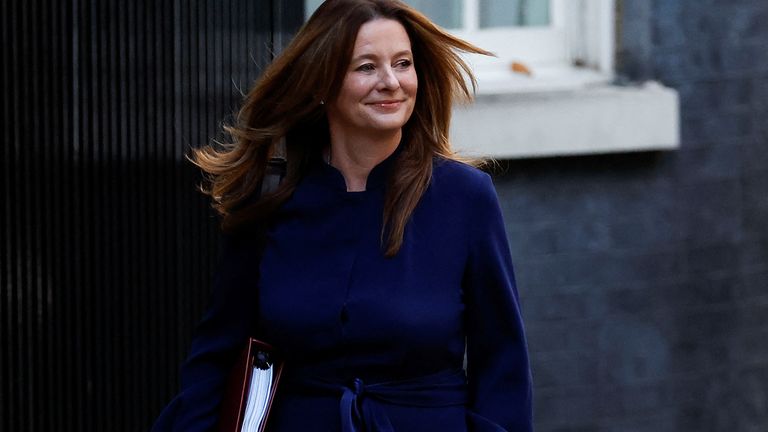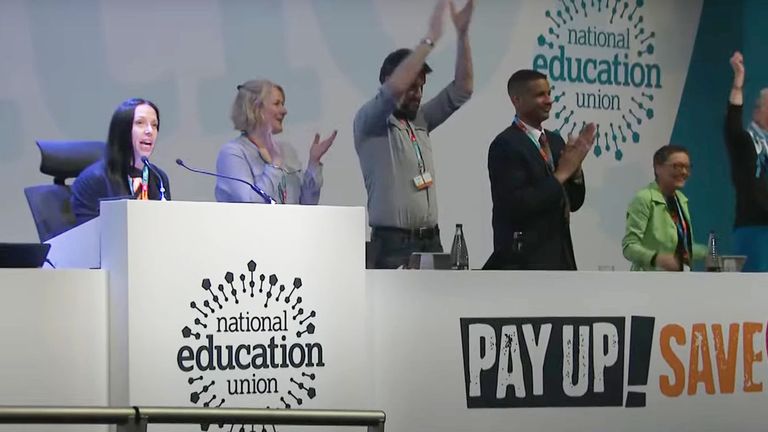
Teachers in England are set to strike again after members of the National Education Union (NEU) overwhelmingly turned down a government pay offer.
Some 98% of those who voted rejected it – and strikes are now scheduled for 27 April and 2 May.
Many schools had to close during previous NEU strikes in February and March.
The government said it had offered teachers a £1,000 payment for the current school year – on top of an average 5.4% rise last September – plus an average 4.5% rise next year.
Education Secretary Gillian Keegan said the new strikes were “extremely disappointing” and would mean “more disruption for children and less money for teachers today”.
Government has gone ‘as far as [they] can’ on pay – cost of living latest
The NEU has called the pay offer “insulting” and said between 42% and 58% of schools would have to make cuts to afford it.
More than 195,000 members voted in the ballot (a 66% turnout), with over 191,000 rejecting it.
Union bosses, speaking at the NEU conference in Harrogate, said they were putting Ms Keegan “on notice”.
“NEU members are telling you clearly, and in ever bigger numbers, your offer does not cut the mustard,” said general secretary Kevin Courtney.
“[The offer] does not deal with the acute shortage in our schools – shortages that parents and parents see every single day,” said co-general secretary Dr Mary Bousted.
Referencing a pay offer disparity between UK nations, she added: “Gillian, why do you think teachers in England are worth less than teachers in Scotland and Wales.”
Read more:
Teachers in Wales end dispute after accepting new pay offer
Scottish teachers’ union suspends strikes after pay offer
Dr Bousted said strikes could be avoided if there’s a new offer “that is fully funded, matches other rises, which begins to deal with the crisis in our schools”.
However, the education secretary said the offer was above inflation – which is forecast to fall to 2.9% by the end of the year.
She also said it included a “commitment to significantly cut workload” after the government announced a taskforce would look at reducing workload by an average five hours a week for teachers.
“The offer was funded, including major new investment of over half a billion pounds, in addition to the record funding already planned for school budgets,” Ms Keegan added in a statement.
She said an independent pay review body would now decide next year’s increase.
The NEU is made up of teachers, further education lecturers, support staff and teaching assistants.
Other unions are also being asked for feedback on the pay offer and could decide to hold their own strike ballots.













